Lanier Hosts Town Hall Meeting
MPD chief meets with community activists to discuss LGBT issues, police procedure

Photo by Aram Vartian
Metropolitan Police Department Chief Cathy Lanier, several department heads within MPD, government leaders and community activists from within the LGBT community came together on Tuesday, June 10 at the Department of Employment Services headquarters for the first-of-its-kind meeting to discuss issues related to policing and the department’s interaction with LGBT people.
The meeting, which was moderated by local radio host Sheila Alexander-Reid, served as an open forum for a number of activists who had long raised concerns about police treatment of LGBT people, particularly LGBT victims of crime. Until recently, MPD and various community groups, by both Lanier and activists’ own admission, had not engaged each other directly, often relying on limited channels of communication or occasional forums, such as meetings of a Critical Incident Team focusing on LGBT-related crimes, or hearings before the D.C. Council, to serve as their primary method of sharing information. Tuesday’s meeting sought to expand dialogue beyond a limited number of gatekeepers by allowing the general public to attend and ask questions of MPD brass.
Lanier fielded many questions related to violent incidents, particularly those committed against members of the District’s transgender community, noting that there had been twelve prominent transgender murders in the past decade, five of which were closed with an arrest of a suspect. Lanier said that the remaining cases remain “active and open,” but cautioned that while police have some strong leads in those cases, they do not have enough evidence needed to make an arrest. She added that this is often the case with many unsolved crimes, which may not have any leads until many years later, when witnesses are either more willing to come forward or the perpetrator of a crime may confide in someone, providing critical information about the incident that can then be used to bring charges against them.
“We really live in a CSI generation now,” Lanier said, referring to a popular TV drama about crime scene investigators. “But there a just a few things that will determine whether we can close a homicide: Is there a witness? Did somebody see what happened? …Is there physical evidence? Is there some other information that people in the community can give us that will lead to information or eyewitnesses…?”
Lanier also tackled the issue of police conduct, urging members of the LGBT community to file complaints against officers who either refuse to take action when a crime is committed, or who mistreat or use anti-LGBT language against victims of crimes. Lanier said that, in either case, if an officer is found to be guilty of failing to take action or conduct unbecoming an officer, penalties can range from a significant suspension to termination. Those who feel they have been mistreated have the option of reporting to MPD within 90 days, or to the Office of Police Complaints, an external office within District government tasked with receiving, investigating and mediating various complaints involving MPD officers, within 45 days of the incident.
The biggest task for Lanier and many of the officers in attendance at the community meeting was addressing how they seek to implement the recommendations made by the Anti-Defamation League (ADL) Hate Crimes Assessment Task Force, which, at Lanier’s behest, conducted an external review of MPD’s responses to crimes involving members of the LGBT community that may be motivated by bias. Sgt. Matthew Mahl, head of the MPD’s Gay and Lesbian Liaison Unit (GLLU), told those attending the meeting that the department is looking at best practices and incorporating those into its LGBT-related sensitivity training for new officer recruits. While in previous years, sensitivity training was carried out by an all-volunteer squad comprised of civilians at personal cost, Lanier said the department is going to shoulder more of the responsibility for carrying out such trainings, though she did say that there was a possibility that they might ask community activists to develop pre-recorded trainings to assist in this effort. But Lanier added that she wants trainees to hear personal stories from people who have experienced violence, discrimination, or police mistreatment in order for them to understand how best to deal with the community, recalling how she was personally moved by a story told by local transgender activist Ruby Corado.
“You can’t listen to a story like that and not be affected if you have a heart,” Lanier said. “You want cops to hear compelling stories.”
Lanier also made news when she agreed to attend the Nov. 20 Day of Transgender Remembrance in person, as part of an effort to make herself more visible and accessible to the community following both the release of the ADL Hate Crimes Assessment Task Force report and additional recommendations by various community groups that responded to the task force. And she told the audience that MPD is no longer standing behind legislation that allowed the creation of “prostitution-free zones,” (PFZs) which allow police to declare certain areas as PFZs in order to force people to disperse from an area.
“We don’t use them anymore anyway, so they can get rid of them,” Lanier said, referring to the D.C. Council, which is slated to hear a bill aimed at repealing PFZs. That bill, co-introduced by Councilmembers David Grosso (I-At-Large), David Catania (I-At-Large) and Mary Cheh (D-Ward 3), could still face an uphill battle, as Council Chairman Phil Mendelson has previously indicated he believes PFZs are useful in disrupting the sex trade by forcing people to disperse, even though high-ranking officials in MPD have testified before the Council that MPD is no longer using PFZs as part of their routine policing.
At the behest of some audience members who asked why MPD doesn’t run a public awareness campaign emphasizing that anti-transgender violence is punishable by law, Lanier cited budgetary issues, but left open the door to a possible partnership with the Mayor’s Office of GLBT Affairs or the Office of Human Rights, which have more access to funding that would be required to carry out any public awareness campaign.
Lanier also told the audience that, following the release of the ADL Hate Crimes Assessment Task Force report, MPD realized that some of the officers in its GLLU-affiliate program – meaning those who have undergone LGBT-sensitivity training and are stationed in individual police districts but who are not part of the GLLU core staff – were not a good fit for the program, and cut those individuals from the affiliate program. She said MPD is hoping to find newer affiliates who are a better match as a way of finding officers who will be able to build relationships with community members and earn their trust over time. It is that trust that will hopefully pay dividends by helping police better do their jobs by receiving crucial information that could assist them in investigating crimes and closing them with an arrest.
Most activists in attendance, including several from organizations like Helping Individual People Survive (HIPS), the DC Trans Coalition (DCTC), and Gays and Lesbians Opposing Violence (GLOV), seemed to view the meeting and the interaction with law enforcement officers as a positive.
“I think it was a great first step to bridge the gap between MPD and the transgender community, to build trust between the two,” Paul Tupper, chair of GLOV, said following the meeting. “I look forward to more interactions between Chief Lanier and MPD with our transgender community, and I see it as a nice first step. I think the conversation was candid, and I walked away learning a lot.”
Support Metro Weekly’s Journalism
These are challenging times for news organizations. And yet it’s crucial we stay active and provide vital resources and information to both our local readers and the world. So won’t you please take a moment and consider supporting Metro Weekly with a membership? For as little as $5 a month, you can help ensure Metro Weekly magazine and MetroWeekly.com remain free, viable resources as we provide the best, most diverse, culturally-resonant LGBTQ coverage in both the D.C. region and around the world. Memberships come with exclusive perks and discounts, your own personal digital delivery of each week’s magazine (and an archive), access to our Member's Lounge when it launches this fall, and exclusive members-only items like Metro Weekly Membership Mugs and Tote Bags! Check out all our membership levels here and please join us today!








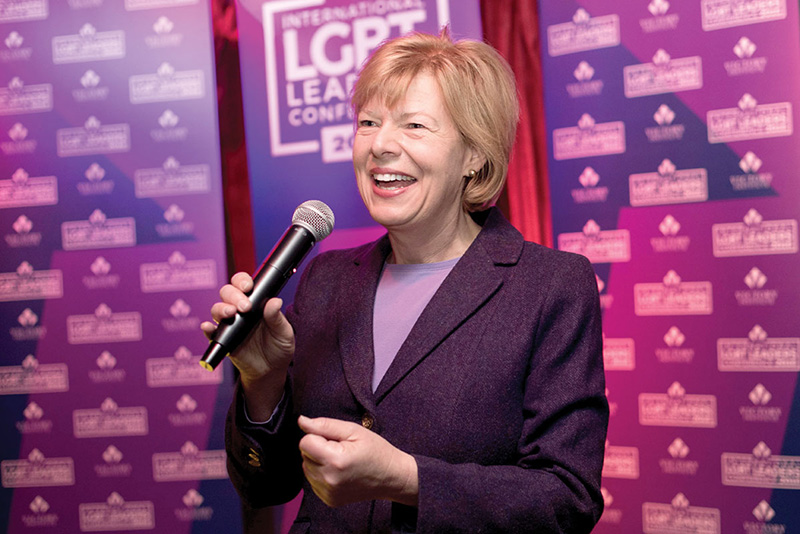
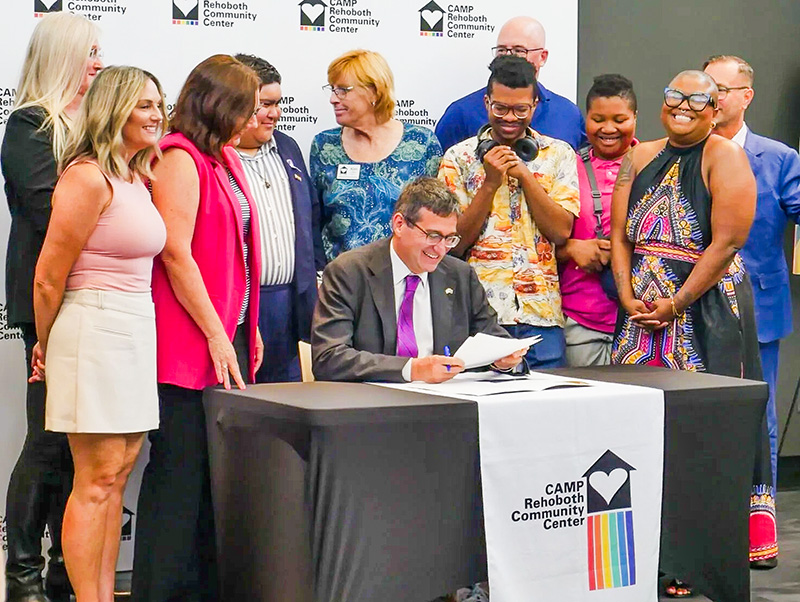













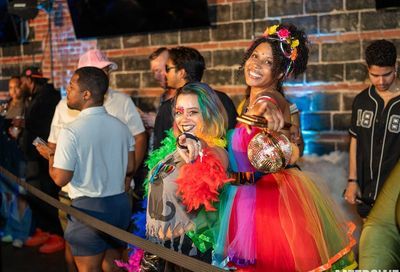

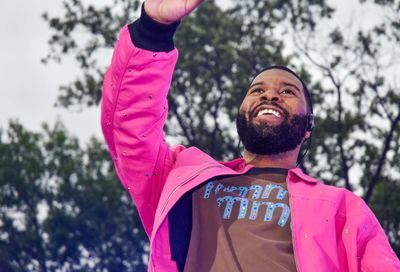
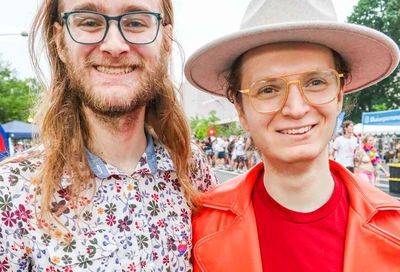
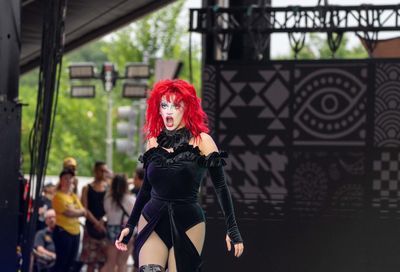

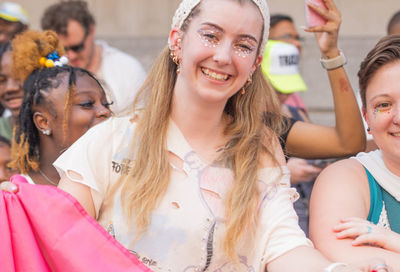
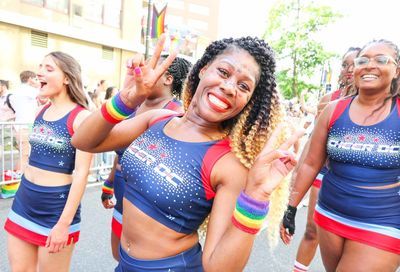
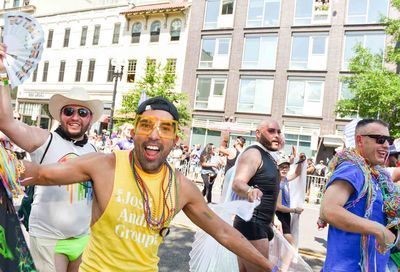
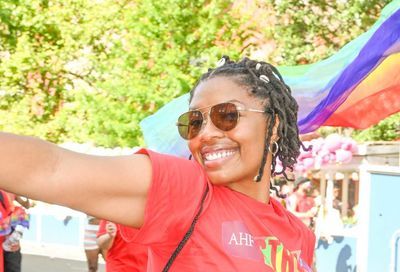
You must be logged in to post a comment.